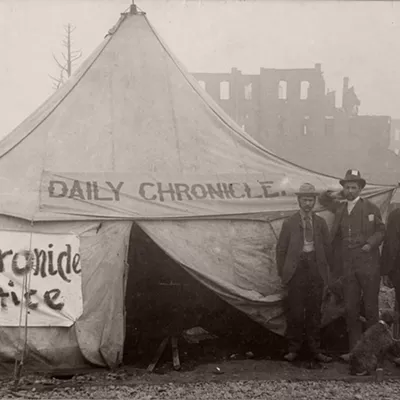This past month we commemorated the 50th anniversary of John F. Kennedy’s inauguration — a time of great hope and anticipation. During the first years of the 1960s, young people throughout the country responded to JFK’s clarion call: “Ask not what your country can do for you, ask what you can do for your country.”
I had arrived in D.C. six months before that. During the campaign, I worked as a copy-boy for the Washington Post. What a place to be during the 1960 campaign. Twenty-something at the time, I felt that Kennedy was speaking directly to me. Like so many others of my generation, I was inspired.
Last week, Caroline Kennedy, reflecting on her father’s legacy, said it best: “I think he really expanded and redefined our idea of what it means to be a citizen — that everybody has something to contribute and everybody has something to give back to this country that’s given us so much,” she said. “It’s not just an obligation, but it’s really a rewarding experience and really a belief in government and politics as a noble profession.”
The Kennedys supported scientific and artistic creativity. Their abiding interest in the performing arts was put on display during the inaugural festivities at the White House. Historian Lewis Mumford described Kennedy as “the first American President to give art, literature and music a place of dignity and honor in our national life.”
Over the years, the luster of Camelot has dimmed somewhat, as would the luster dim on any family put under a microscope for half a century. Nothing, however, can dim what John F. Kennedy represented, especially to the young people of America.
He gave them a voice, a sense of purpose and even a place. He spoke to their ideals, and he understood the importance of their self-worth. He inspired them to contribute and give it their all.
Which brings me to President Obama. The Barack Obama we saw in the wake of the Tucson shootings reminds us that he can do this for all America, and, most importantly in these times, do it for the younger set — those between 18 and 34 years old. Indeed, they desperately need to recapture the inspiration that motivated them during the campaign of 2008.
But the Barack Obama of the past two years? He has failed to address young people’s economic circumstances…
But the Barack Obama of the past two years — the Barack Obama of the State of the Union speech? He has failed to address their economic circumstances, barely managing to even acknowledge them.
Worse than the job market, what are contributing to young people’s self-defeating but understandable cynicism are those dashed expectations. Barack Obama presented himself during the campaign as the next JFK, certainly insofar as the younger demographic was concerned. He spoke to them of “change we can believe in.” He promised them “hope.”
He has delivered neither. He actually insults them. In his State of the Union message, once again, Obama all but ignored them, except for the single bone he manages to toss out on every such occasion: Now young people, don’t forget that because of me you can stay on your parents’ health care coverage until age 26. This has become little more than a tag line, a footnote, a parenthetical verbal bridge to the next subject. His implicit message? You can now remain a dependent for two more years, and, anyway, I’ve got more important things to talk about.
Tamar Lewin, in an article that appeared last week in the New York Times, writes about the record level of stress found in college freshman. I see the young people she writes about every day at Gonzaga. And, if you will permit a disclaimer, we have a son who graduated from the University of Washington last summer. He and his struggling friends were urged by the adult world to take honors classes and AP courses, to do well on the standardized tests, get into a good college, come out with a degree, maybe two — and, along the way, learn a foreign language, play a musical instrument, perform community service, pick up an internship or two. The implicit message was that, if they did all that, like every generation since the late 1950s, there would be ways for them to “contribute.”
The adult world’s promises to this generation were sideswiped in 2008, through no fault of these young people. They did what we urged them to do — and did it well. Now they fear being left out; they fear turning 30, in debt and having done nothing more than survive. What may be more damaging is their loss of a sense of self-worth. And for this, the president bears much of the blame. They are fully aware that Obama is president today in no small measure because of what they did, and this awareness makes his AWOL routine all the more distressing.
As he sets sail for his second two years, he might want to ponder this. Spending some time with JFK wouldn’t be a bad idea now. While Obama has barely spoken to young people over the past two years, Kennedy never stopped






















